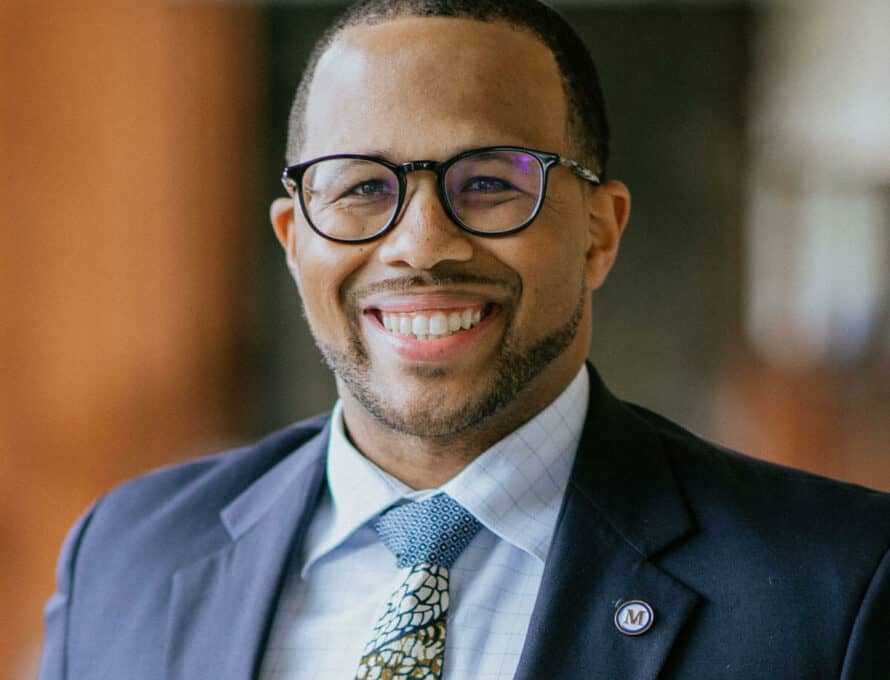If a scan of the evening news is any indication, we remain a world divided. Divided by nations; divided by faith; divided by politics; divided by race. Sadly, the SBC has previously found itself on the wrong side of the last; prompting many people of color to seek Christian community elsewhere.
Over the years, dear brothers have approached me asking, “Why are you still here? Why do you stay?” Rather than express why racial reconciliation – a worthy pursuit – should matter to you, I hope to share my heart and express why it matters to me.
For the Bible tells me so
In 2 Corinthians 5, Paul implored his readers to “be reconciled to God.” Sometimes lost in translation is Paul’s command being written in the divine passive. Simply put, God does the reconciling. We are the reconciled. Don’t be stubborn. Let God perform His new creation work (5:17). This relationship change between God and redeemed humanity is a vertical reality with horizontal implications. Without equivocation, there can be no bifurcation of these realities.
Jesus summarized the law and prophets into loving God and neighbor. Christians are reconciled by God to God, and in view of the Great Commission, exhort others to the same. How can I love God and yet not love my brother? How can I run to keep God’s law while denying – or ignoring – the brokenness confronting my local and global community? Racial reconciliation matters to me because reconciliation – horizontally and vertically – matters to God.
A calling like no other
Though every Christian has a divinely ordained responsibility to witness to what God has done, my call to Gospel ministry was more acute. C.H. Spurgeon, in his Lectures to My Students, noted the first sign of a minister’s calling as an intense, all-absorbing desire for the work; a sense one can do nothing else. Though my ministry pales in comparison to Spurgeon’s, we share a kindred burden. My calling – general and specific – transformed the lens through which I viewed God and God’s creation. As a minister of the Gospel and the ministry of reconciliation, I’m irresistibly called to advance God’s Kingdom agenda, in this season, in this space.
Eternal Family Reunion
Emblazoned in my mind are youthful memories of family reunions: cookouts replete with children running, dominoes slamming, and the sound of the O’Jays over speakers. If you’ve ever seen the end of a Tyler Perry movie, you get the picture. It’s a celebration! How much more of a celebration will heaven be?
I’m reminded of Stephen Covey’s second of seven habits: begin with the end in mind. Far be it from me to reduce theology to self-help literature, but perhaps there’s value in orienting our earthly lives around our eternal home. If in the end, I’ll spend eternity with my Heavenly Father, Elder Brother, and a people of every tribe, tongue, and nation, shouldn’t I seek to know them? Appreciate their cultures, stories, and differences? Families are messy. You know! You’re in one! But forever’s a long time. Why not start now? Racial reconciliation matters to me because, though we’re different, we’re family.
Warrior ethos
For ages, Christians developed creeds, confessions, and statements to summarize essential tenets of the faith. For Southern Baptists, we have the BFM2000. The US Army also has a creed: The Soldier’s Creed. Nestled within the creed is the Warrior Ethos: I will always place the mission first. I will never accept defeat. I will never quit. I will never leave a fallen comrade. These declarations carry both personal and spiritual significance. I will always place the Great Commission – and all its implications – first. I will never accept defeat because victory through Christ is secure. I will never quit, because He who began a good work in you will perform it until the day of Jesus Christ. I will never leave a brother, because God has never left, nor forsaken me. Spiritual warfare isn’t for the faint of heart, but our weapons are divinely powerful. Racism has no place in God’s Army. I remain at the table because I’m a Christian Soldier.
Perhaps my reasons for staying at the table – for pursuing racial reconciliation – are not much different than your reasons for engaging any God-honoring, Gospel-centered work. Race and reconciliation are complex conversations; ones I cannot exhaustively engage in 800 words. Please don’t allow my care for this matter to communicate a lack of concern for other God-honoring, gospel-centered endeavors (life, environment, work, education, etc.). The table at which we sit is only by grace. Give grace as it’s been given you. May the God who is making all things new, reconciling us to Himself and to one another, unite all believers as lights for the world to see!

